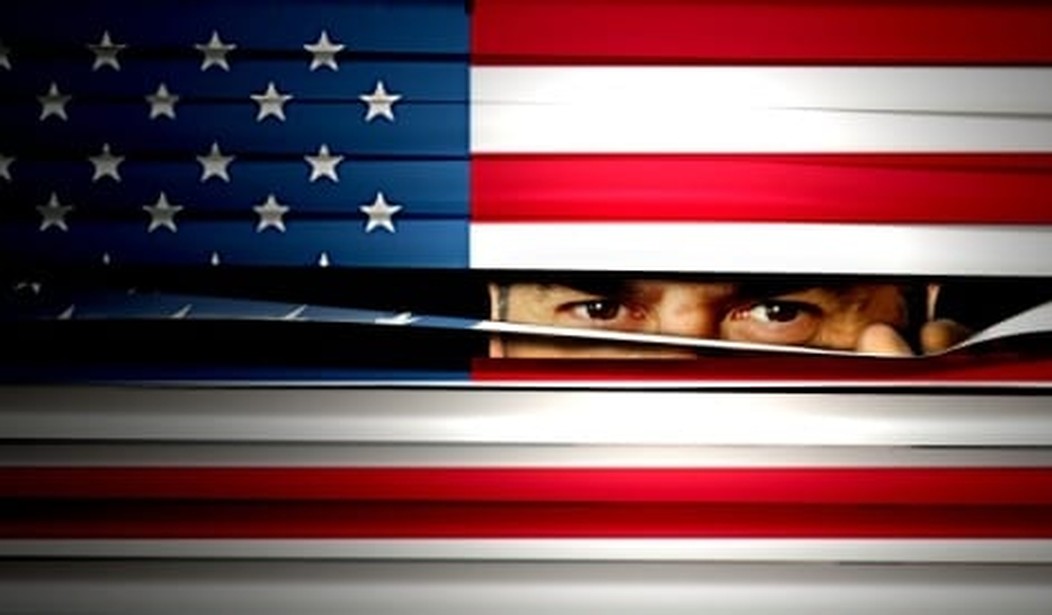As this week drew to a close, the scandal trifecta of Benghazi, IRS targeting and snooping on journalists seemed so five days ago.
The late-week revelation that the National Security Agency accessed the Verizon phone records of millions of Americans snowballed within a day as more phone companies were included and operation PRISM, which involved agreements with nine Internet companies to monitor email and web activity, put the Obama administration on the defense.
The main White House defense is that phone records did not include snooping on the content of the calls, that email and web habits of U.S. citizens weren’t monitored, and that all activities started in some form during the George W. Bush years.
But if Democrats stuck by the administration’s side on Benghazi, peeled away just enough for public effect on the IRS, and were visibly irritated by threats to freedom of the press, it didn’t help Obama that his director of national intelligence told a Democratic senator under oath in March that the NSA wasn’t spying on Americans — “wittingly.”
Today, that senator, Ron Wyden (D-Ore.), and Sen. Mark Udall (D-Colo.), who had previously joined Wyden in questioning the administration on how seriously it took privacy protections, said in a joint statement they “respectfully but firmly disagree with the way that this program has been described by senior administration officials.”
“After years of review, we believe statements that this very broad Patriot Act collection has been ‘a critical tool in protecting the nation’ do not appear to hold up under close scrutiny. We remain unconvinced that the secret Patriot Act collection has actually provided any uniquely valuable intelligence,” said the Democrats, both members of the Senate Intelligence Committee. “As far as we can see, all of the useful information that it has provided appears to have also been available through other collection methods that do not violate the privacy of law-abiding Americans in the way that the Patriot Act collection does. We hope that President Obama will probe the basis for these assertions, as we have.”
“We also disagree with the statement that the broad Patriot Act collection strikes the ‘right balance’ between protecting American security and protecting Americans’ privacy. In our view it does not. When Americans call their friends and family, whom they call, when they call, and where they call from is private information. We believe the large-scale collection of this information by the government has a very significant impact on Americans’ privacy, whether senior government officials recognize that fact or not,” Wyden and Udall added.
In a speech he’d hoped would be about lauding the progress of ObamaCare implementation today, Obama had to shift gears to the latest scandal and told reporters “it’s important to recognize that you can’t have 100 percent security and also then have 100 percent privacy and zero inconvenience.”
“So I want to be very clear: Some of the hype that we’ve been hearing over the last day or so, nobody’s listening to the content of people’s phone calls,” the president added.
Wyden and Udall said they “have long been concerned about the degree to which this collection has relied on ‘secret law.'”
“Senior administration officials have stated on multiple occasions that the Patriot Act’s ‘business records’ authority is ‘analogous to a grand jury subpoena.’ And multiple senior officials have stated that US intelligence agencies do not collect information or dossiers on ‘millions of Americans,'” they said.
“Now that the fact of bulk collection has been declassified, we believe that more information about the scale of the collection, and specifically whether it involves the records of ‘millions of Americans,’ should be declassified as well.”
Sen. Rand Paul (R-Ky.), a fervent privacy advocate who could get the biggest 2016 cred out of this scandal, today introduced the Fourth Amendment Restoration Act of 2013, which states “the Fourth Amendment to the Constitution shall not be construed to allow any agency of the United States Government to search the phone records of Americans without a warrant based on probable cause.”
“The revelation that the NSA has secretly seized the call records of millions of Americans, without probable cause, represents an outrageous abuse of power and a violation of the Fourth Amendment to the Constitution,” Paul said.
“When the Senate rushed through a last-minute extension of the FISA Amendments Act late last year, I insisted on a vote on my amendment (SA 3436) to require stronger protections on business records and prohibiting the kind of data-mining this case has revealed. Just last month, I introduced S.1037, the Fourth Amendment Preservation and Protection Act, which would provide exactly the kind of protections that, if enacted, could have prevented these abuses and stopped these increasingly frequent violations of every American’s constitutional rights.”
Sen. Jeff Merkley (D-Ore.), who called the administration’s data collection, an “outrageous breach of Americans’ privacy,” said the White House and FISA court have interpreted the Patriot Act to be a “barn door” instead of a “very small, limited peephole.”
“Recall the president campaigned saying that we can — he attacked Bush for his policies. Said we can absolutely balance privacy and security. It can be done in a targeted way,” Merkley said on MSNBC today. “And what we have is very untargeted.”
“Clearly, the administration has not followed what the — an ordinary person would consider to be the standard of the law here, and has not been willing to release the opinion of the FISA Court about how they’re interpreting that language, despite repeated requests from Congress to do so,” he continued.
Merkley said Obama “glossed over” the controversy in his midday speech.
“He took very lightly the collection of very detailed information about who you call, who you talk to across America. He took very lightly the fact that that information involves where you are, when — the tracking of virtually every American through their cell phone. He kept coming back to say the content of the phone call isn’t listened to,” the Oregon Dem said.
And whereas Obama claimed members of Congress were up to speed on the reported programs, Merkley confirmed he’d never heard about operation PRISM.
“And so, when the president says — I think he said, ‘all members of Congress’ or ‘full disclosure to all your members,’ or something like that, well, I think very small number of senators and congressmen had full — the details on these programs,” the senator said.
Obama had his defenders, though.
“I think this is not really something you can blame the Obama administration for because I think any executive branch is going to operate at the extent of the law,” Rep. Keith Ellison (D-Minn.) said on CNN.
“I’ll say this about President Obama’s statement. No 100 percent privacy, no 100 percent security. Obviously that’s right, but that’s why we have to constantly strike the balance. It’s a cop-out to say 100 percent, 100 percent this or that, no American thinks we’ll have 100 percent privacy or 100 percent security,” Ellison added. “But we have to strike the balance better and I think it is Congress’ duty.”
Rep. Henry Waxman (D-Calif.) said Obama was “absolutely right.”
“We do have to make some choices. We have to achieve a balance. But I question whether we’ve achieved the right balance under the laws under which President Obama operated,” Waxman said on MSNBC. “And so therefore, his actions are not in violation of the law. The question is whether the law allows and overreach by the intelligence agencies into people’s civil liberties.”
Members of Congress are supposed to receive a classified briefing on the surveillance programs Tuesday.









Join the conversation as a VIP Member